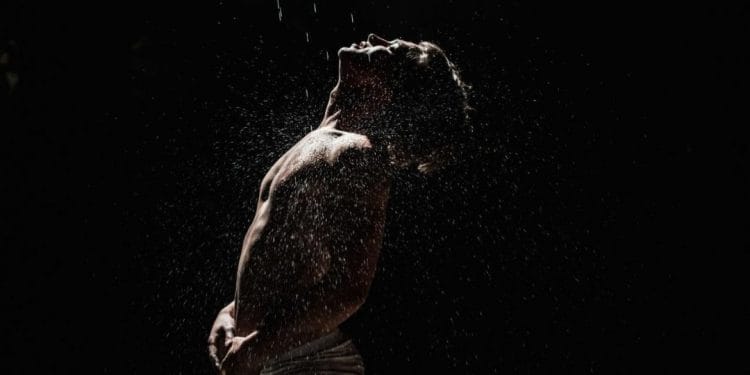 Lazarus Theatre round off their second season residency at The Greenwich Theatre with Oscar Wilde’s sensationally scandalous Salomé, directed by Ricky Dukes. The original play, translated into English from French, was banned by the Lord Chamberlain, though more for its depiction of a biblical figure than its sexual content.
Lazarus Theatre round off their second season residency at The Greenwich Theatre with Oscar Wilde’s sensationally scandalous Salomé, directed by Ricky Dukes. The original play, translated into English from French, was banned by the Lord Chamberlain, though more for its depiction of a biblical figure than its sexual content.
Wilde’s play is a twist on the beheading of John the Baptist, who in this play takes the form of the prophet Jokanaan. The tetrarch Herod cannot take his eyes off of his beautiful stepson, Salomé. Against the wishes of Herodias, his mother, Salomé agrees to dance the dance of the seven veils for Herod, in return for the head of Jokanaan on a silver charger; Jokanaan having refused Salome’s advances.
As Lazarus Theatre continue to explore gender fluidity, the title character, who is traditionally female, here is a male character. It’s one of the few occasions where a gender switch works to the productions advantage, as it heightens and amplifies many of the play’s central themes. Herod, married to a woman, lusts after a young boy instead of a girl, while the concept of the male gaze seems doubly pertinent as Salomé, now male, wonders at the beauty of Jokanaan.
Though transposed to modern day, this is ostensibly Wilde’s original, and it’s not his best work. The biblical language is weighed down in metaphor and symbolism, while the reliance on poetry sees many phrases repeated. The first act in particular struggles to gather much momentum, with the young Prince’s initial meeting with Jokanaan the only real spark.
The second act is more compelling, as the dance of the seven veils takes place, although the removal of a t-shirt and jeans probably wasn’t what Wilde had intended when he imagined the flowing fabrics that would caress the female form. However, the dance manages to be tasteful yet shocking, seductive, and repulsive all at once.
For all the faults with the script, Ricky Dukes has ensured it is magnificently presented, in a style which is becoming synonymous with Lazarus Theatre. There’s not much in the way of set, but the most spectacular of backdrops is created through Hector Murray’s powerful lighting design. Will Thompson’s soundscape has the entire production pulsating with a sexual tension, which tantalises its audience.
Not all of the cast cope well with the tricky language, but the central performances from Jamie O’Neill (Herod), Bailey Pilbeam (Salomé) and Annemarie Anang (Herodias) are all strong. O’Neill especially, in the scenes where Herod realises just how much his moment of (quite graphic) pleasure has actually cost him.
This production of Salomé does its best to mitigate the weaknesses of the original play through striking staging and modern elements. The spirit of Wilde’s original is unleashed in this brave reimagining, which redefines the boundaries and casts a lingering gaze on the possibilities of restaging classic works.























